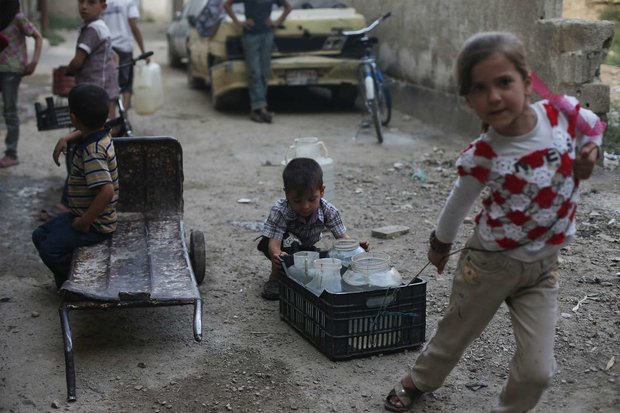Governments with the largest increase in needy people are Quneitra, Dara'a, Damascus, Idlib and Aleppo, according to a joint statement from the United Nations Food and Agriculture Organization (FAO) and the World Food Program (WFP).
According to the document, the latest crop assessment and food insecurity show that "after five years of conflict many farmers are no longer in a position to continue to resist."
If they do not receive immediate aid, they will be forced to abandon food production in the face of rising prices and a shortage of inputs, such as fertilizers and seeds, the report noted.
This year's wheat harvest was only 1.5 million tonnes, 55 percent less than the 3.4 million before the war.
This is due to the current crisis and the accompanying sanctions, which affect trade, markets and access to quality seeds, fertilizers, machinery and fuels.
The situation is aggravated by the shortage of rainfall and the destruction of irrigation equipment, which in some cases has lead to farmers making crop changes to other more resistant, but less nutritious options such as barley.
Abdessalam Ould, deputy director-general of FAO and regional representative for the Middle East and North Africa, pointed out yesterday that 80 percent of households in Syria are facing a lack of food and money to buy it.
A situation that he said can only be overcome if, 'we support the farmers so that they can conserve their lands and their means of life.'
Agriculture is the main livelihood for rural households, but 'farmers have exhausted their ability to cope with the situation,' he stressed.
The FAO and WFP statement highlights that during the war about 11 million Syrians were displaced from their homes, of which 4.8 migrated to neighboring countries.
PL/MNA
























Your Comment